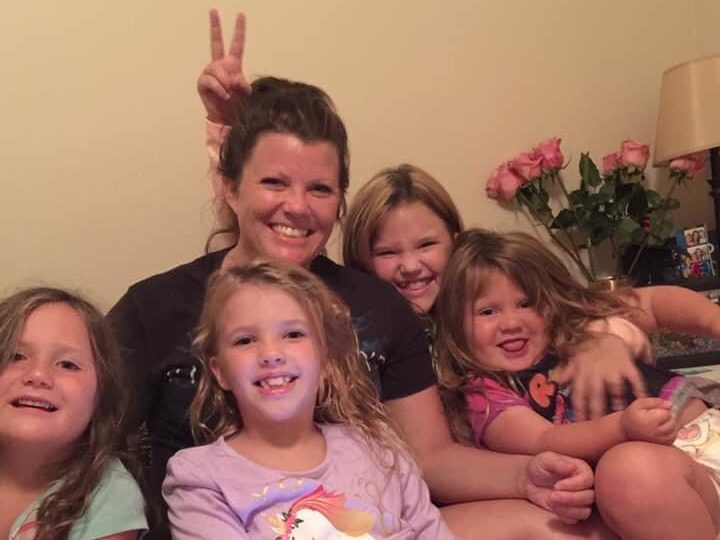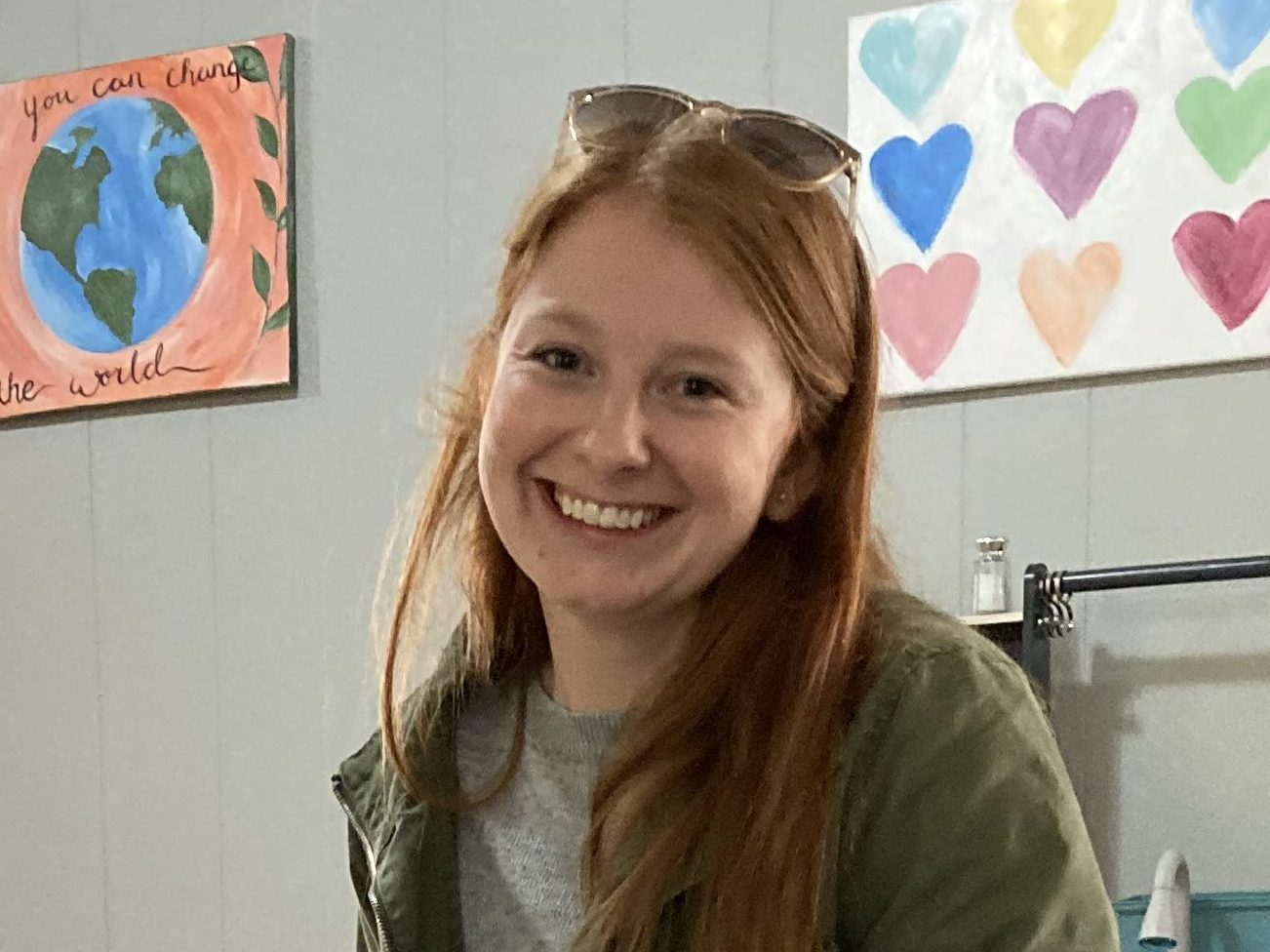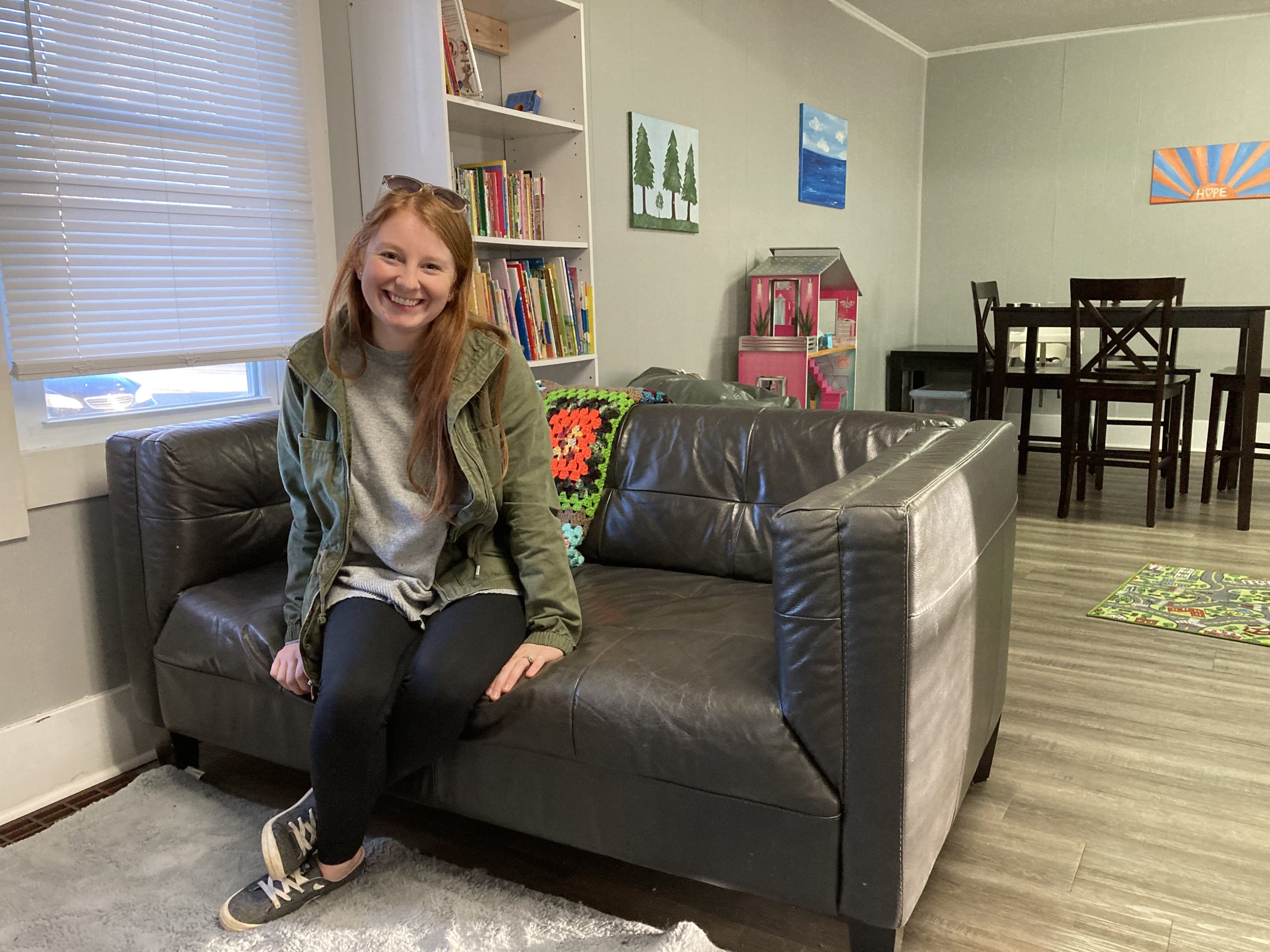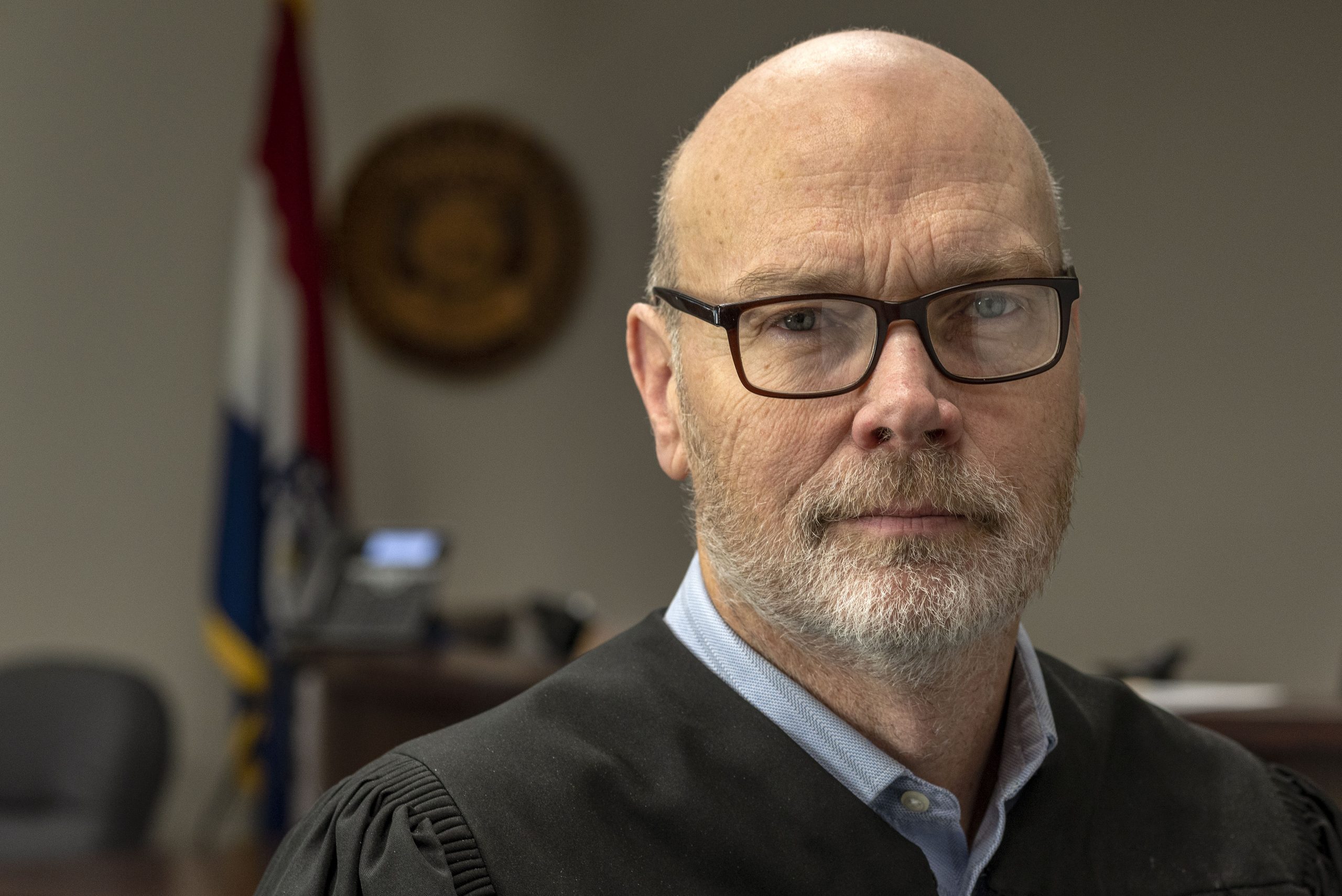Summary
Heather Boisvert’s young daughters wound up in foster care a few years ago as she struggled with substance use disorder, domestic violence and homelessness. Her story illustrates the hard work required of parents seeking to be reunified with children.
Why care?
In Greene County, 386 children were placed in foster care at least temporarily in 2021. That’s an average of 32 children a month — up from an average of 20 just four years earlier. Of the cases that were closed last year, 40 percent ended in reunification, which research shows is in the best interest of the children and parents when it’s safe to do so.
Heather Boisvert and her two youngest daughters ended up in Springfield a few years ago under less than ideal circumstances. She came here to be with a man, someone she thought was a trusted friend.
“I was kind of on my low point in life, and I left California to try to get away from it all,” Boisvert said. “We were going to be in a relationship, and I made the stupid decision to move in with him. It turns out like within the first week of being there, he was abusive and on drugs.”
One day the abuse became too much, and Boisvert fled on foot with her daughters in tow.
Since she was new to the area and had no one to call, Boisvert and her girls found a place to sit outside until someone finally called the police.
“I was at my rock bottom,” Boisvert recalled. “I just sat there for like five hours.”
Boisvert admitted to the officers she had used drugs earlier that week and that she and her daughters had nowhere to go.
The officers notified the state Children's Division, and her girls were placed in foster care.
The foster care system is increasingly overburdened, due largely to increases in child neglect and child abuse cases. Last year alone, an average of 32 Greene County children were placed in foster care at least temporarily every month. While caseloads vary from year to year, the average hit a low point of about 20 children per month in 2017.
For more than half of the Greene County parents in Boisvert’s situation, this is where the story ends: They are eventually determined to be unfit, their parental rights are terminated and the children remain in foster care until being adopted or they age out of the system.
Boisvert, though, was one of the roughly 40 percent of parents who persevered. It took her 18 months, but she worked her way through Greene County’s Juvenile Court and Family Treatment Court programs to be reunited with her girls.
Related stories
Family Connections provides safe place for supervised family visits
Prior to the creation of the Family Connections program, Greene County bio-parents and their children in foster care were limited to having their visits in public places like libraries and parks. The center provides a supervised safe space in a home-like setting.
‘Let’s assume they love their kids,’ says judge who advocates for family reunification
Greene County Juvenile Judge Andy Hosmer Hosmer focuses on reunification of foster children and their biological parents — and on providing the opportunity for unsupervised visits when it is safe for kids.
Greene County Juvenile Court Judge Andy Hosmer, who has presided over these types of cases since January 2015, said reunification of children with their biological parents is always the goal when it is safe to do so.

“The best outcome for the kids is reunification, if we can do that,” Hosmer said. “One of the things I think a lot of parents and a lot of people that are kind of outside the system have a misconception about is that somehow Children’s Division and/or the court like taking kids into care. And we don’t, and they don’t.”
Hosmer acknowledged it is not an easy road for bio-parents who are working to be reunified with their children once they’ve been taken into care. Generally speaking, Hosmer said he expects these two things from parents: stability and sobriety.
For Boisvert, that meant completing intense classes on topics such as addiction, parenting and life skills. It meant going from being homeless and alone in a strange city to getting a stable job and a place of her own.
“It was the craziest stressful thing ever,” Boisvert said of the 18 months her daughters were in foster care.
During much of that time, Boisvert slept in a homeless shelter and walked up to 10 miles a day to attend the required classes and court hearings — all while working to maintain her sobriety and dealing with the sadness and stress of being separated from her babies.
At one point, she broke down and told her Children’s Division caseworker she couldn’t take it anymore. She asked that her girls be sent to live with Boisvert’s sister.
“I was so overwhelmed,” Boisvert said. “She’s like, ‘No, you’ve got this.’”
That very next day, Boisvert used meth. She immediately told the judge what happened. Because she was honest, he allowed Boisvert to continue to work the program.
She never used drugs again.
Boisvert was reunified with her daughters in 2020.
“I just couldn’t fathom the thought of losing my girls, you know? Like never seeing them again,” she continued. “I had no choice. I was there to get my kids back.”
Boisvert credits the support she received from those involved with her case including: her caseworker with the Children’s Division, which is part of the Missouri Department of Social Services; the staff with the Greene County Family Treatment and Juvenile courts; and the Connecting Ground’s Family Connections program.
‘I was at my rock bottom’
Boisvert now lives in Oregon but shared what she went through to be reunified with her girls with the Daily Citizen in recent phone interviews.
On the day her daughters were taken into custody in 2018, the police officers referred Boisvert to Safe to Sleep, an overnight shelter for unsheltered women that is housed in a church gymnasium. Since the women can’t stay there during the day, a shuttle brought Boisvert and the others every morning to the Veterans Coming Home Center, a downtown Springfield daytime drop-in shelter for the unsheltered community.
From there, Boisvert walked to wherever she needed to go. For the first several months that she was in the Family Treatment Court program, Boisvert was required to attend parenting and substance abuse classes at Preferred Family Healthcare.
One day, her abusive ex-boyfriend discovered where she was attending classes and tried to chase her down with his vehicle, Boisvert said. She was then sent to Harmony House, a shelter for victims of domestic violence.
Boisvert said moving into Harmony House — a shelter that allowed her to settle in and stay in the same room rather than having to pack up in the mornings and carry her belongings all day — gave her a chance to heal and focus on her recovery.
“I had somewhere to stay warm,” she said. “They took great care of me there.”
All the while, Boisvert worked to complete the Family Treatment Court program and made the changes needed to be reunified with her daughters.
She had to check in with the treatment program every day and was subject to random drug testing. After about nine months of attending classes eight hours a day Monday through Friday, Boisvert’s time in the classroom lessened, and she was able to get a job.
Eventually, she managed to save enough money to get her own place. But that didn’t mean she immediately got her girls back.
“They do home visits before you get your kids,” she said. “The workers come check on you any time of the day. They make sure that you’re the only one living there. And then you introduce your kids to the house.”
About four months after she had her own place, Boisvert’s two youngest daughters were finally allowed to live with her. Not long after that, she regained custody of her two older daughters who had been living in Tennessee with their father.
“It was awesome,” she said of that reunion. “I hadn’t seen my older two girls in about five years, so it was just overwhelming.”
‘It’s worth it to work so hard’

Boisvert’s daughters are now ages 12, 9, 6 and 4. (She has a 15-year-old daughter who has lived with her father since she was a baby.)
After she got her four youngest girls back, Boisvert put Missouri in her rearview mirror.
“I moved to Pendleton, Oregon, because my twin sister lives there,” Boisvert said. “We’ve got our own house, and everything has been good.”
Boisvert’s sister also has five young kids, and they live a block away.
“(It’s) a lot of cousins, and there’s always something going on,” she said, laughing. “That’s one thing I love about it. They get to play together all the time.”
The 33-year-old single mom now works as a certified nursing assistant and has three years of sobriety.
“It’s so easy for the parents who get their kids taken just to fall back into drugs or lose hope,” Boisvert said. “I just wish I could grab them all and be like: You can do it. It’s worth it. And stick to the program and trust the people in the court and trust the people around you. They actually want you to have your kids back, and they’ll help you.
“It’s worth it to work so hard to get your kids back,” she added. “I can’t imagine living without them. That was a long year and a half of my life.”

One person who understands is Holly Madden, founder and director of the Family Connections program, which offers a safe and “homey” space where biological parents and their children in foster care can have their supervised visits.
According to Madden, the circumstances which led to Boisvert losing custody of her children are not uncommon: Boisvert was never facing any criminal charges of abuse or neglect. The single mom was homeless and dealing with substance use disorder.
“When we first met her, it was immediate how good of a mom she was and how much she loved her girls. And those circumstances did not define what they had as a future,” Madden said. “The biggest thing was she just needed people to believe in her and come alongside her and champion her. It was a privilege to get to do some of that.
“She fought like hell, and she got her girls back,” Madden added. “I am so incredibly proud of her. I am proud of the decisions that she made.”
For Boisvert, having people like Madden to support and encourage her made all the difference in the world.
“(The folks at the Family Connections program) never judged you and they just rooted for you,” Boisvert said. “In that situation, it was everything to me.”
How to get involved
- CASA of Southwest Missouri needs volunteers to serve as advocates for children in the foster care system. Executive Director Laura Farmer said there are currently 129 local children on a waitlist for a Court Appointed Special Advocate. CASAs complete 30 hours of training (15 hours in classroom, 15 hours online) and volunteers learn what it means to be a CASA, about the court and child welfare system and how to connect with a youth who has been traumatized. CASAs are assigned to one foster care case, either an individual child or siblings. CASAs visit with their child at least twice a month and attend Family Support Team meetings and court hearings. To learn more about becoming a CASA, visit casaswmo.org or call 417-864-6202.
- There is an urgent need for foster families and for families who are interested in providing respite care for kids in foster care, Farmer said. Respite care would be providing weekend care or temporary care for the child when their foster parents are going out of town or just needing a break. To learn more about this, call the Children’s Division at 573-522-1191 or email fostercare@dss.mo.gov.
- The Family Connections program at the Connecting Grounds church needs both volunteers to supervise visits between foster kids and their biological parents, and more churches that will allow their buildings to be used for visits. To learn more about either of these opportunities, visit theconnectinggrounds.com/volunteer.
- Foster Adopt Connect is a nonprofit organization that offers multiple programs to serve foster families, foster children and youth who are aging out of the system. Foster Adopt Connect is also home to Sammy’s Window, a clothing, hygiene products and food pantry for foster families and young people who recently aged out of foster care. To learn about the many ways to support this organization, visit fosteradopt.org/.
More information
Missouri Department of Social Services’ Child Welfare Manual: https://dssmanuals.mo.gov/child-welfare-manual/child-welfare-manual-2019-update/
Missouri statutes regarding juvenile courts: https://revisor.mo.gov/main/OneChapter.aspx?chapter=211
U.S. Department of Health & Human Services’ Children’s Bureau: https://www.acf.hhs.gov/cb
American Bar Association: National Reunification Month (americanbar.org)
Editor’s Note: The Hauxeda reached out to Heather Dolce, media director for the Missouri Department of Social Services, to request an interview with someone from Springfield’s Children’s Division office. Dolce replied that no one would be available for an interview.



